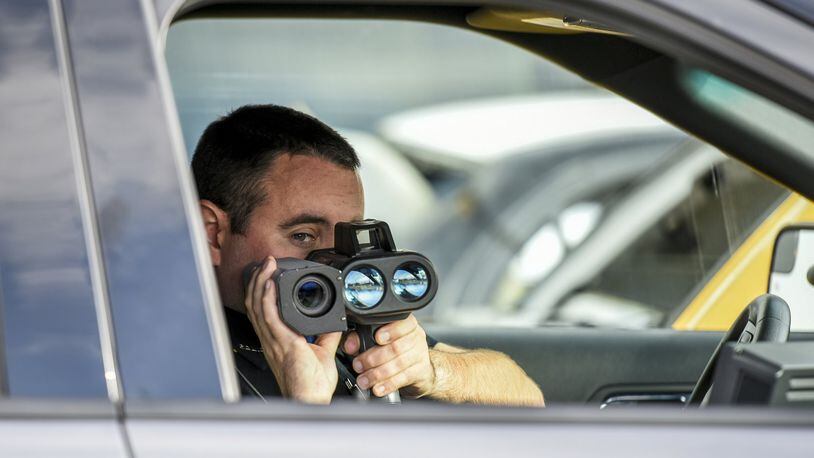The village considered either trying to join the Dayton lawsuit or filing its own action in Butler County. Council voted Thursday night to have its solicitor, Dennis Adams, file a lawsuit in Butler County Common Pleas Court against the state.
RELATED: New Miami might sue over new Ohio speed camera laws after suspending program
When the new state transportation bill passed, it reduced the amount of state financial aid local jurisdictions receive by the amount they collect annually in speed camera ticket revenue and added a new wrinkle, mandating the courts handle speed camera citations as civil proceedings that include court fees and costs.
New Miami Mayor Bob Henley told the Journal-News when the law was passed the village would likely “let the big people fight it,” but Adams said the recent developments changed their plans. Adams said he plans to file the suit this week that will ask the judge for both a temporary and permanent injunction. If that is successful at the temporary stage, the speed cameras will immediately begin operating again.
“I think the fact that there have been two court decisions in favor of the injunction has helped him (Henley) make that decision,” Adams said.
The village’s new speed camera program includes a police officer aiming a camera at passing drivers, usually just at the edge of town on U.S. 127. The old stationary speed camera program is the subject of a five-year-old lawsuit challenging its constitutionality.
The village has collected $1.76 million under the new program that was instated in 2016 but only received $52,448 in local government funds from the state last year.
The law took effect in July, and the village paused its program. The bigger financial issue is the court costs.
Hamilton Municipal Court Clerk Michelle Deaton said the civil filing fee is $85, and there could be other costs. The New Miami speeding tickets were $95.
However, the village only keeps 64 percent of the fine collections, so for the 2,888 tickets paid this year through June — if the law had been in effect all that time — the village would have had to pay the court at least $245,480, but only collected $175,635.
The village has spent $359,105 in attorneys’ fees fighting the lawsuit over the old, unconstitutional speed camera program. At this time Adams said he will be handling the suit, not outside counsel.
The last time the legislature tried to interfere with local jurisdictions’ speed camera programs the Ohio Supreme Court said the law was unconstitutional. But State Rep. Bill Seitz, who is also a lawyer and one of the architects of the new law, said he doesn’t believe the high court will find fault with these statutes. He said the last time officials tried to make the camera programs uniform statewide and the Supreme Court said that violated home rule. This time it is only about money.
“We’re not telling them how to run their programs, they can do whatever they want, they can put a camera on every corner if that’s what floats their boat,” Seitz told the Journal-News. “But we’re simply not going to subsidize you with state revenue if that’s how you choose to raise your revenue.”
Adams said he will argue that making the village take the tickets through the court violates home rule.
“By mandating that the municipal courts take jurisdiction over these civil citations infringed on the village of New Miami and any municipality’s home rule,” Adams said.
About the Author
